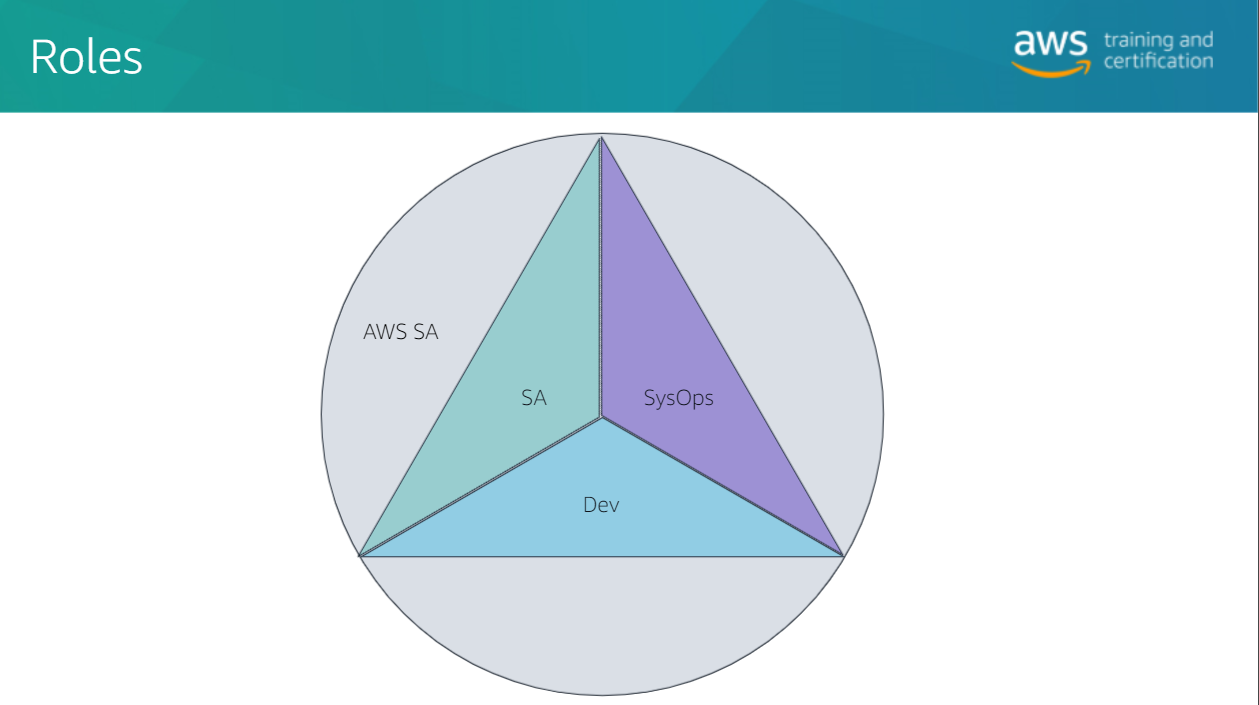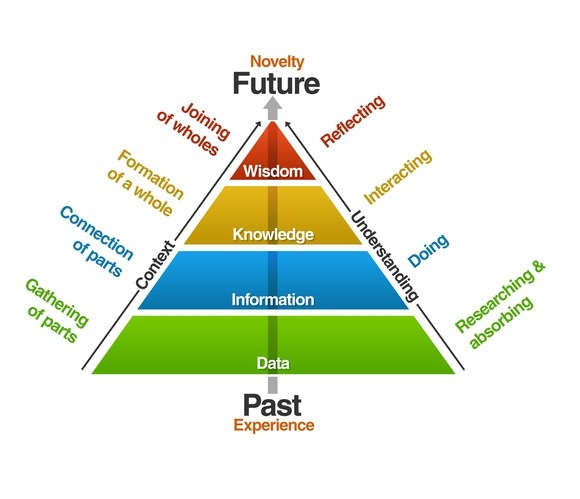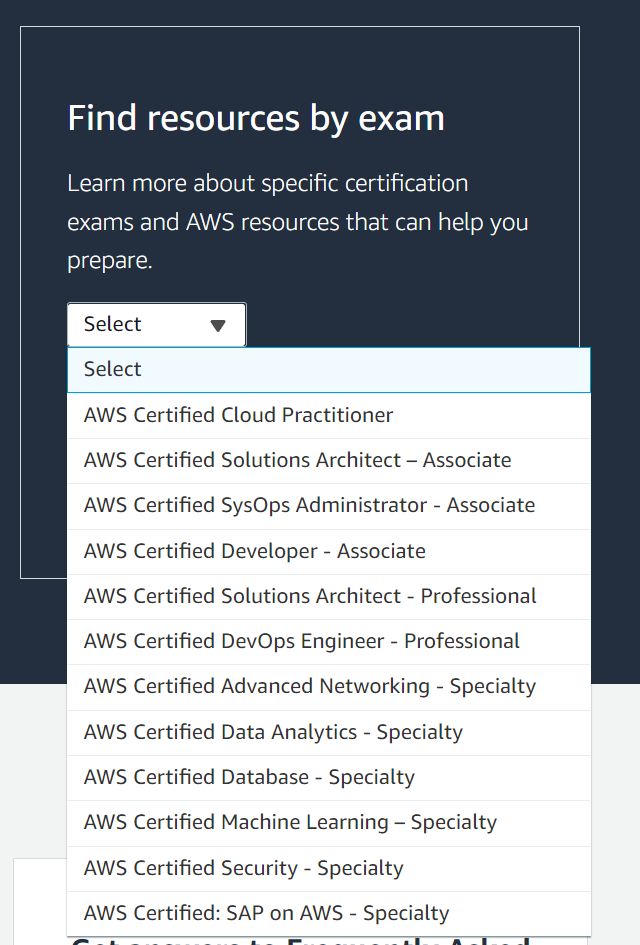
I have always been a fan of professional certification in the areas of my interests for these reasons:
- Certifications calibrate your professional judgment – they provide a prioritized top-down state-of-the-art knowledge of the field, along with the best practices
- Certification is a good predictor of success in metrics-based and facts-based organization – the certification success measures your ability to get the best preparation materials available, to prioritize, to cross-reference and to master them in the shortest time possible with the knowledge that no material is perfect and may even include inaccurate information or may miss some information in full, and to apply the learned concepts under exam stress.
- The certifications cover the most important concepts in the field – in the AWS world, having all AWS certifications is a necessary requirement for any successful AWS architect since they cover the entire AWS and for any successful AWS design you need to be aware of all minute details. For example, only the AWS networking certification covers the jumbo frames (MTU 9001) which are critical for any high-performance architecture.
The difference between AWS and other certifications
- AWS Certifications cover actionable knowledge – all questions on AWS exams are purely real-world based – they describe a scenario and offer multiple solutions how to address, while on the other hand, for example, the FinOps Foundation’s Certifications are the least actionable ones.
- AWS Certifications do not have official textbooks for their curriculum listing all required concepts, unlike, for example, the CFA certification which is offered with the textbooks describing the entire required knowledge for each year’s exam. Instead, AWS outlines very generally the “topic areas and objectives”.
- The exam questions are continuously refreshed for the latest AWS technologies meaning that any preparation kit older than 1 or 2 years has a limited applicability. Any new feature or service must be generally available (GA) for at least six months before it can appear on an exam though. Thus, the exam content is always a moving target.
AWS Certifications
AWS currently offers twelve certifications with overlapping curriculum. For example, an AWS Solutions Role (AWS SA) requires the knowledge of these certifications: SA (AWS Solutions Architect), SysOps (AWS Certified SysOps Administrator), and AWS Dev (AWS Certified Developer).

AWS now offers these twelve exams:
- Foundational Level
- Cloud Practitioner
- Cloud Practitioner
- Associate Level
- Solutions Architect Associate
- Developer Associate
- SysOps Administrator Associate
- Professional Level
- Solutions Architect Professional
- DevOps Engineer Professional
- Specialty Level
- Advanced Networking Specialty
- Data Analytics Specialty
- Database Specialty
- Machine Learning Specialty
- Security Specialty
- SAP on AWS Specialty
Each exam has sixty-five questions with fifteen questions not being graded – they are used for further exam analytics. To pass an exam, you need to answer 75% of the graded questions correctly. While the pass rates are confidential, on one of the AWS webinars it was revealed that the pass rate for the ML specialty certifications may be far less than 5%.
The objectives of the AWS exams are
- Validity – accurately and appropriately measure what is relevant
- Reliability – consistent and precise
- Fairness – puts no group at a disadvantage.
Notice that these objectives are different from other certifications focusing on testing abstract academic concepts.
AWS exams are designed with different cognitive levels in mind:
- Recall – identify, define, list → AWS Foundational Certifications
- Understand / Apply – determine, use, classify → AWS Associate Certifications
- Analyze / Evaluate – troubleshoot, analyze, assess → AWS Professional and Specialty Certifications
In other words, AWS Professional and Specialty Certifications differ from the AWS Associate Certifications in the level of detail you are required to know – you should be able to compare & contrast all covered concepts and you are required to have an inquisitive mindset.
This is related to the hierarchy of knowledge:

Optimal Preparation Strategy
First, design your overall AWS certification plan – it’s best to start with the Associate level exams and then build cadence and move to the Professional and Specialty Certifications since the curriculums overlap. You need at least a month between the exams for the new knowledge to settle in – people usually take a three-month break between the exams – all depends on the level of your pre-existing knowledge.
For example, one sound certification path might be taking the exams in this order:
- AWS Certified Solutions Architect – Associate
- AWS Certified Developer Associate
- AWS Certified SysOps Administrator – Associate
- Any Professional / Specialty Certification of interest
- AWS Certified DevOps Engineer – Professional
- AWS Certified Solutions Architect – Professional
- Specialty Certifications
Second, head to Prepare for your AWS Certification Exam | Training and Certification | AWS (amazon.com) and choose the target exam in the dropdown – the browser then loads the appropriate AWS exam page with all official AWS resources, such as practice questions.

Third, complement those resources with the complimentary AWS online exam review workshops.
Fourth, the official AWS certification books, if recent, are most helpful.
Fifth, CloudGuru and CloudAcademy cannot go deep enough for the professional / specialty exams given their limited-time videos but offer good test banks.
Sixth, try to obtain as many test banks as possible – you are looking for questions from different perspectives to activate your knowledge. Try Whizlabs or Tutorials Dojo.
Seventh, for the Professional or Specialty exams, you must read the actual AWS docs for the covered services.
AWS Golden Jacket
As a gesture of recognition, AWS gives anyone who passed all their twelve certification exams AWS Golden Jacket (see this and this).

